Faculty Notes
- Notes
- Lewis Nielson’s Opera USW Gets Rave Reviews
- Former Professor of Flute Robert Willoughby Celebrates 90th Birthday
Notes
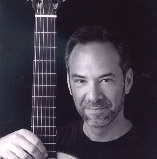
Stephen Aron
Stephen Aron, teacher of classical guitar, recently published three new original works for solo guitar: “One Fell Swoop,” “Three Musings,” and “Bach on Guitar” (Clear Note Publications). Aron was a featured guest artist at concerts and master classes in Denmark and France, as well as at guitar festivals in the U.S., including the Austin Peay Summer Guitar Festival (Clarksville, Tenn.), the ECU Guitar Festival and Competition (Greensboro, N.C.), the Rosario Guitar Festival and Competition (Columbia, S.C.), and the Mannes Guitar Seminar (New York City).
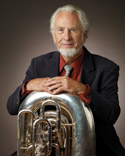
Ronald Bishop
Teacher of Tuba Ronald Bishop played Ingolf Dahl’s “Music for Brass Instruments” with a graduate student group from the Cleveland Institute of Music in January. Bishop was featured in the winter issue of the International Tuba and Euphonium Association Journal, and he presented at Lycoming College in Williamsport, Pa.
Associate Professor of Piano Angela Cheng performed as a soloist with orchestras in Hong Kong; Edmonton, Alberta; and Boulder, Colo.; as well as with the Maryland Symphony and California’s New West Symphony. She had chamber music performances with Pinchas Zukerman and the Zukerman Chamber Players in Chile, Argentina, Uruguay, Brazil, Switzerland, Italy, Russia, and the United States, including the 92nd Street Y in New York City. Cheng presented all-Chopin recitals for Jeunesses Musicales of Canada (Montreal), the Festival International de Lanaudiere (Quebec), Portland Piano International Summer Festival (Oregon), Festival of the Sound (Parry Sound, Ontario), the state convention of the California Music Teachers Association (Los Angeles), and the University of Alberta (Edmonton). Last June, she was presented with an Honorary Doctor of Laws degree from the University of Alberta at Edmonton for her life as a “concert pianist and ambassador for classical music.”
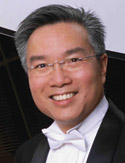
Alvin Chow
Associate Professor of Piano and Chair of the Piano Department Alvin Chow organized piano department bicentennial celebrations for Chopin (in February) and Schumann (in November). Each festival consisted of five concerts and featured almost every piano student at Oberlin, as well as faculty and guests. Chow was a convention artist for the Colorado Music Teachers Association State Conference in Denver and gave duo performances, lectures, and master classes with Alan Chow at Wheaton College in Illinois.
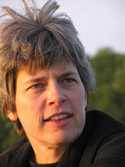
Kendra Colton
Assistant Professor of Singing Kendra Colton brought six Oberlin students to Boston to study Bach cantata arias with musicians from Emmanuel Music, who have been performing this repertoire for decades. Colton sang Poulenc’s Gloria with the Columbus symphony in April, and last July celebrated her 13th summer performing with the Carmel Bach Festival. In December she also performed in the Baltimore Symphony’s production of Handel’s Messiah.
Director of Audio Services Paul Eachus produced and engineered a number of CD releases last year. Jazz pianist Geri Allen recorded multiple tracks live at Oberlin that appeared on her new disc, Timeline. The CD, which featured tap dancer Maurice Chestnut and Oberlin alumnus Kassa Overall ’06 on drums, was nominated for an NAACP Image Award. Eachus also recently finished recording all of Beethoven’s Op. 18 String Quartets with the Arianna String Quartet in Oberlin’s new Clonick Hall recording studio. The CD will be released on the Centaur label. A CD on the Arsis label featuring the music of composer Su Lian Tan was recorded by Eachus in Warner Concert Hall, with conservatory faculty members Darrett Adkins on cello and David Bowlin on violin.
Professor of Music Education Joanne Erwin led the orchestras of the Suzuki Institutes in Columbus, Ohio, and Ft. Worth, Texas, last summer. As artistic director of the Northern Ohio Youth Orchestras (NOYO), she organized and taught a chamber music camp in August for young instrumentalists, and led a “drop-in” ensemble of intergenerational orchestra players during the month of June. October found her again in Texas, where she presented a string pedagogy workshop for the Irving School District. Activities in 2011 included an OMEA string presentation in January and a Suzuki workshop in Houston in February. In March, Erwin traveled to Singapore, where she conducted the Singapore American School Orchestra Festival.
Professor of Music Education Jody Kerchner founded and taught in the music education secondary general music lab last spring at North Ridgeville Middle School in Lorain County. In July, she traveled to Hong Kong as the keynote speaker at the Hong Kong Association for Music Education seminar. An article she cowrote, “Border Crossing: Music Experiences for All Ages,” will appear in The Oxford Handbook of Music Education. Finally, Kerchner has been awarded Oberlin College research status for the 2011-12 academic year, during which time she hopes to complete research and write a music listening pedagogy text for pre- and in-service music educators.
Professor of Music Education and Conducting John W. Knight conducted the Oberlin College Community Winds in two world premieres at Finney Chapel. “Concerto for Trombone” was written by Clarence Barber to honor Professor of Trombone James DeSano, who was soloist, for his 33-year tenure with the Cleveland Orchestra. The second world premiere, “One,” was written by Stephen Melillo to honor alumnus Marty Lydecker ’75 for his outstanding 35 years of contributions to music education in Ohio.
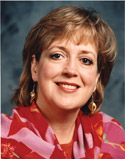
Lorraine Manz
Associate Professor of Singing Lorraine Manz continues her work fusing cutting-edge scientific research with vocal pedagogy at Oberlin. Manz is director of the Otto B. Schoepfle Vocal Arts Center at Oberlin. Last fall, she gave a live demonstration at the Chicago Humanities Festival. Joining Manz in the demonstration were bass-baritones Brian Mextorf ’12 and Michael D’Emilio ’11. Manz analyzed the singing of Mextorf and D’Emilio using a spectrogram, visually demonstrating how spectrographic displays can be used to train opera singers to develop their vocal clarity and power.
Associate Professor of Musicology Charles McGuire ’92 continued to work on Tonic Sol-fa, presenting papers on its use by British missionaries in late-19th century Madagascar at the April 2010 Midwest Victorian Studies Association Conference in Iowa City and at Case Western Reserve University in September 2010. He also presented new research on English musical festivals at the biennial conference of the North American British Music Studies Association in Des Moines in the summer of 2010. McGuire spent the 2011 spring semester in London teaching as part of the Danenberg Oberlin-in-London program.
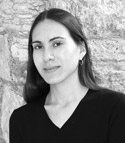
Kathryn Montoya
Assistant Professor of Recorder and Baroque Oboe Kathryn Montoya performed on the Grammy-nominated Ars Lyrica recording of J.A. Hasse’s “Marc Antonio e Cleopatra.” Ars Lyrica, based in Houston, is the first group to record Hasse’s opera, which was composed in 1725 but only recently published. Joining Montoya on the recording is violinist Kurt Johnson ’99.
Works by Professor of Composition Lewis Nielson received several prestigious prizes this year. Nielson’s composition What about you? won the Bassoon Chamber Music Composition Competition and will receive a world premiere by renowned bassoonist Paula Brusky. The piece, written for violin, cello, and bassoon, will also be recorded and commercially released on the MSR Classics Label. The Italy Percussive Arts Society awarded top prizes to two of Nielson’s pieces. The pieces were Axis (Sandman) for solo percussionist and string orchestra, and Tocsin for percussion sextet. In addition to a substantial cash award, Nielson’s pieces will be performed at the next Italy PAS conference in 2011.
An article written by Stephen Pierce, visiting assistant professor of piano pedagogy, was featured in the March/April 2011 issue of Clavier Companion. Pierce interviewed South African pianist Anton Nel, who is chair of the piano department at the University of Texas at Austin, who described his own musical upbringing in South Africa and the United States, and discussed highlights from his lengthy and impressive career as a performer and teacher. “As a fellow South African, I grew up hearing about the legendary Anton Nel almost as soon as I had learned to find middle C on the keyboard,” wrote Pierce in the article. “He possesses not only pianistic finesse, commanding technique, and an ability to play virtually anything that he wishes, but also a warmth and genuine love of music and musicians.”
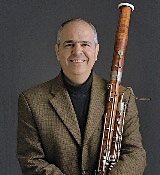
George Sakakeeny
Professor of Bassoon George Sakakeeny gave solo recitals in San Francisco, Tokyo, Venezuela, Houston, and at the Interlochen Bassoon Institute. While at Interlochen, Sakakeeny also taught lessons and master classes, coached chamber music ensembles, and guest performed on a solo recital by flutist Bonita Boyd. He also performed with the Baltimore Symphony Orchestra in a concert at Carnegie Hall, and as principal bassoonist in the orchestra of CityMusic Cleveland.
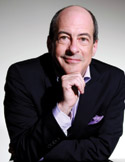
Robert Spano '83
Professor of Conducting Robert Spano ’83 was named musical director of the Aspen Music Festival. Spano, who has served as music director of the Atlanta Symphony Orchestra for the past 10 years, has appeared at the Aspen Music Festival eight times since 1993. He will take complete control of the festival in summer 2012, conducting between three and five concerts a season, planning concert programs, and leading conductor training. The Aspen festival is a prime training ground for young musicians, most of whom are college age, and it attracts prominent professional musicians who go there to teach, coach, and give concerts.
Teacher of Baroque Flute Kathie Lynn Stewart performed an all-Mozart program with Apollo’s Fire—the Cleveland Baroque Orchestra—at Cleveland’s Severance Hall in March 2010. In May 2010, Stewart gave three performances of Handel’s Water Music as recorder soloist with the Cleveland Orchestra. In October 2010, she held residency in Shanghai, China, with the Oberlin Baroque Ensemble at the First Baroque Chamber Music Festival, Shanghai Conservatory of Music. Stewart rounded out the year with extensive touring, performing with Apollo’s Fire across the United States and in Europe, including a sold-out performance at London’s Wigmore Hall.
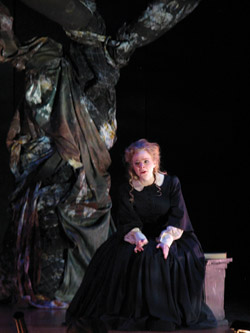
Master of opera student Sara Casey appears as The Governess in The Turn of the Screw in Finney Chapel, which was directed by Victoria Vaughan in February 2011.
Assistant Director of Opera Victoria Vaughan has been busy working at both ends of the operatic timeline. In summer 2009 she staged the acclaimed production of Les Arts Florissants that the Department of Historical Performance took to the Boston Early Music Festival. She also worked on several premieres with Real Time Opera, including the Harvey Pekar opera Leave Me Alone!, which was webcast from Finney Chapel. A recent RTO commission and production concept by Vaughan became part of the new Interdisciplinary Studies in Opera publication series and appears in the book Opera Indigene: Re/presenting First Nations and Indigenous Cultures by Ashgate Press. During winter term 2011 she directed The Turn of the Screw in Finney Chapel, working alongside conductor Alan Montgomery in his last full production at Oberlin before he retired in May. Vaughan is now working on a new book, A Performer’s Introduction to Opera Workshop.
Lewis Nielson’s Opera USW Universally Praised
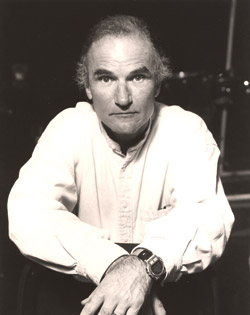
Lewis Nielson
Opera Cabal, the Chicago-based avant-garde opera company, premiered Professor of Composition Lewis Nielson’s opera USW in February. The critically acclaimed work, which featured video produced by Alexander Overington ’11, was shown in Oberlin, Chicago, and New York City. Time Out New York called the opera “a wild, compelling, multimedia ride … [It’s] experimental, arty, and progressive.” Time Out Chicago hailed it as “a bold sensory exploration of Polish-German revolutionary Rosa Luxemburg.” Chicagoist magazine declared: “This is abstract art not for the faint of heart.”
USW is a one-act multimedia chamber opera based on the life, social conditions, and writings of Polish-German socialist Rosa Luxemburg. Stage direction was by Emmy Award-winner Habib Azar, and music direction was by Nicholas DeMaison ’02. The libretto, written by Nielson, is an assemblage of fragmentary passages in multiple languages of works by Luxemburg and other socialists prominent in the 19th century, including Karl Marx, Friedrich Engels, Jean Jaurès, and writers from the turn of the 20th century (among them Georg Trakl, Ferdinand Freiligrath, and F. Scott Fitzgerald).
“Rosa Luxemburg was certainly the pre-eminent writer after Marx on issues of economic development, the effect of war on economic concerns, and the role of the workers in bringing about a socialist society,” said Nielson. “She is a dramatic and tragic figure as well, given her martyrdom at the hands of the German reactionary forces just after World War I.” Nielson added that while the different languages used and the means of diffusion make the texts relatively unintelligible, they contribute “context and color to the musical and visual whole.”
The collage-like quality of the score was reinforced by the multimedia components of the opera. “There are multiple ways and levels in which design elements interact with the music and staging,” Overington said of the production. “Individually, each element is autonomous, but when combined they form a symbiotic unit.”
Former Professor of Flute Robert Willoughby
Celebrates 90th Birthday
Former Professor of Flute Robert Willoughby, called the “American grandmaster of the flute” by Flute magazine, celebrated his 90th birthday in June. An event honoring him will be held in Oberlin in October 2011.
Willoughby, known by most as “Bob,” taught at Oberlin for 37 years, leaving in the late 1980s to live in New Hampshire and teach part time. Willoughby performed for nine years as assistant principal flutist in the Cleveland Orchestra under famed conductor George Szell. He was also one of the first baroque flute players in America, amassing an impressive collection of baroque flutes and exposing his students to the world of historically informed performance. Willoughby’s students can be found in universities, orchestras, and chamber ensembles across the country, including the Cleveland Orchestra, San Francisco Orchestra, and the Da Capo Players. His students are a testament to his prodigious work as an educator, and, in honor of his 90th birthday, many of them have offered tributes to his life and work:
“Of all the professors at Oberlin, Bob was my favorite and the most influential in my life and career. I owe a great debt of gratitude to him. Thanks for being in my life, Bob. Happy 90th birthday and many more healthy, happy ones.”
–Paul Horn ’52, jazz flutist
“For me, Bob has always possessed the rare combination of being on the one hand very disciplined but also very open-minded. When I was his student at Oberlin, Bob took his sabbatical year and traveled to Holland in order to become acquainted with the baroque flute. In those days, the baroque flute was not a well-known animal and certainly not considered by most prominent modern flutists to be a friendly animal, but Bob was curious. His curiosity has shaped my entire musical life. Upon his return to Oberlin he planted a baroque flute in my hands: ‘Try this.’”
–Janet See ’73, baroque flute soloist
“I guess one thing I began to understand from Bob was what ‘discipline’ actually meant, and the best way he taught that was by his own example. He had his boundaries and his schedule very clear in his own mind. His lessons were always on time. His daily routine was to get up at about 4 or 5 a.m. and practice before even coming to school. He always gave us the best of his knowledge partly because he was practicing what he taught and took care of himself. Of course there were so many other things I learned from him, but that idea of discipline has remained with me, mostly because he walked the talk!”
–Greer Ellison ’74, baroque flutist and faculty member at the University of California at Santa Cruz
“In my high school years, I attended many music camps and flute classes around the country. Everywhere I went, I asked, “Who is the best flute teacher in the United States?” I always received the same answer: “Bob Willoughby at Oberlin.” It was my good fortune to be accepted into his studio, and my four years there were the best time of my life. Bob made an indelible impression on me, and not a day goes by that I don’t think of many things he taught me. He teaches all of his students to think deeply and independently about their interpretive choices. I am forever grateful!”
–Leonard Garrison ’79, assistant professor of flute and aural skills at the Lionel Hampton School of Music, University of Idaho
“Because Oberlin was predominantly an undergraduate program, Robert Willoughby often did not get full recognition for his wonderful students, as many of them went on to other teachers in prestigious graduate programs. I feel that he has been and continues to be one of the best flute teachers in this country!”
–Katherine (Penny) Kemler ’73, Charles and Mary Barré Alumni Professor of Flute, Louisiana State University
